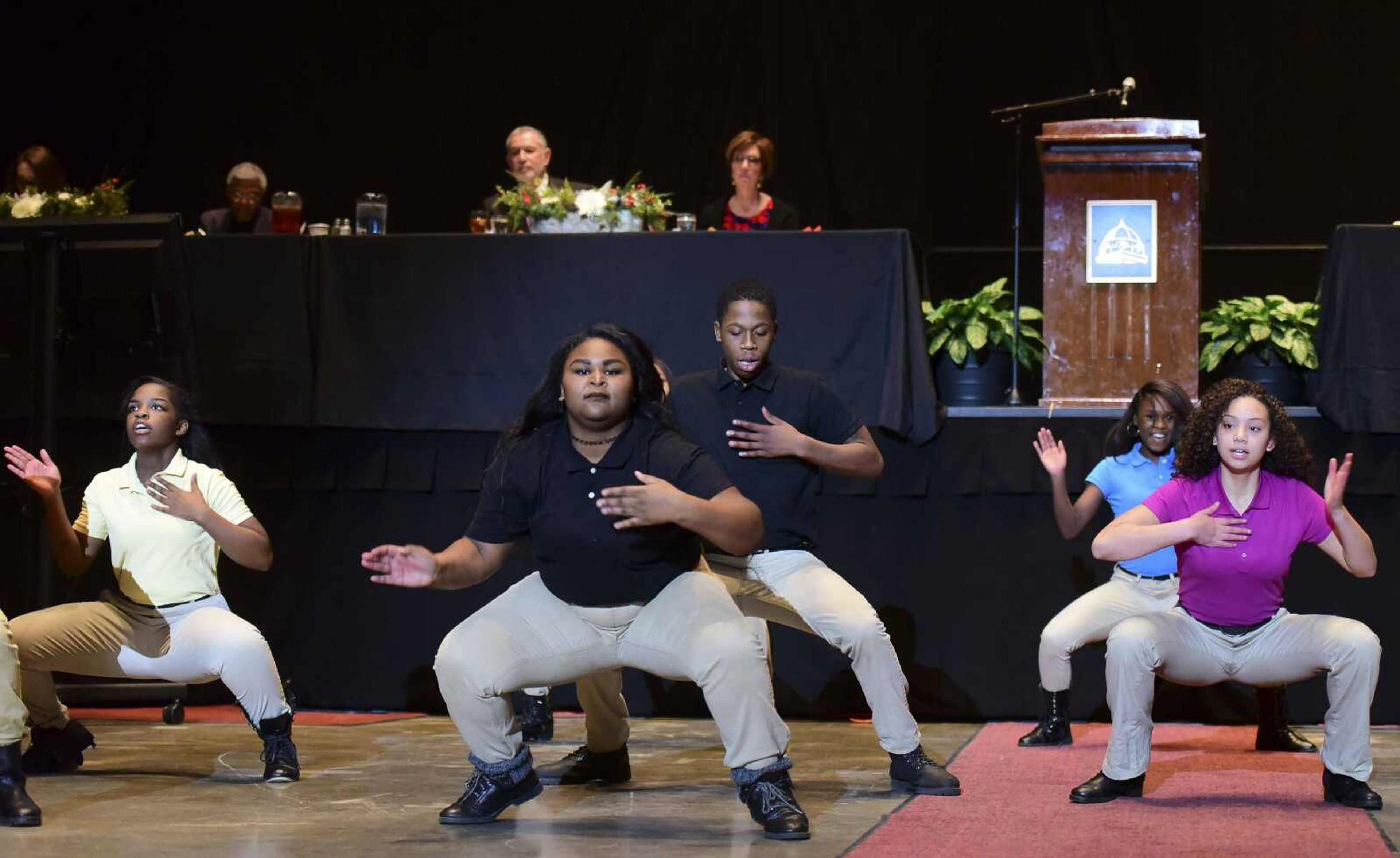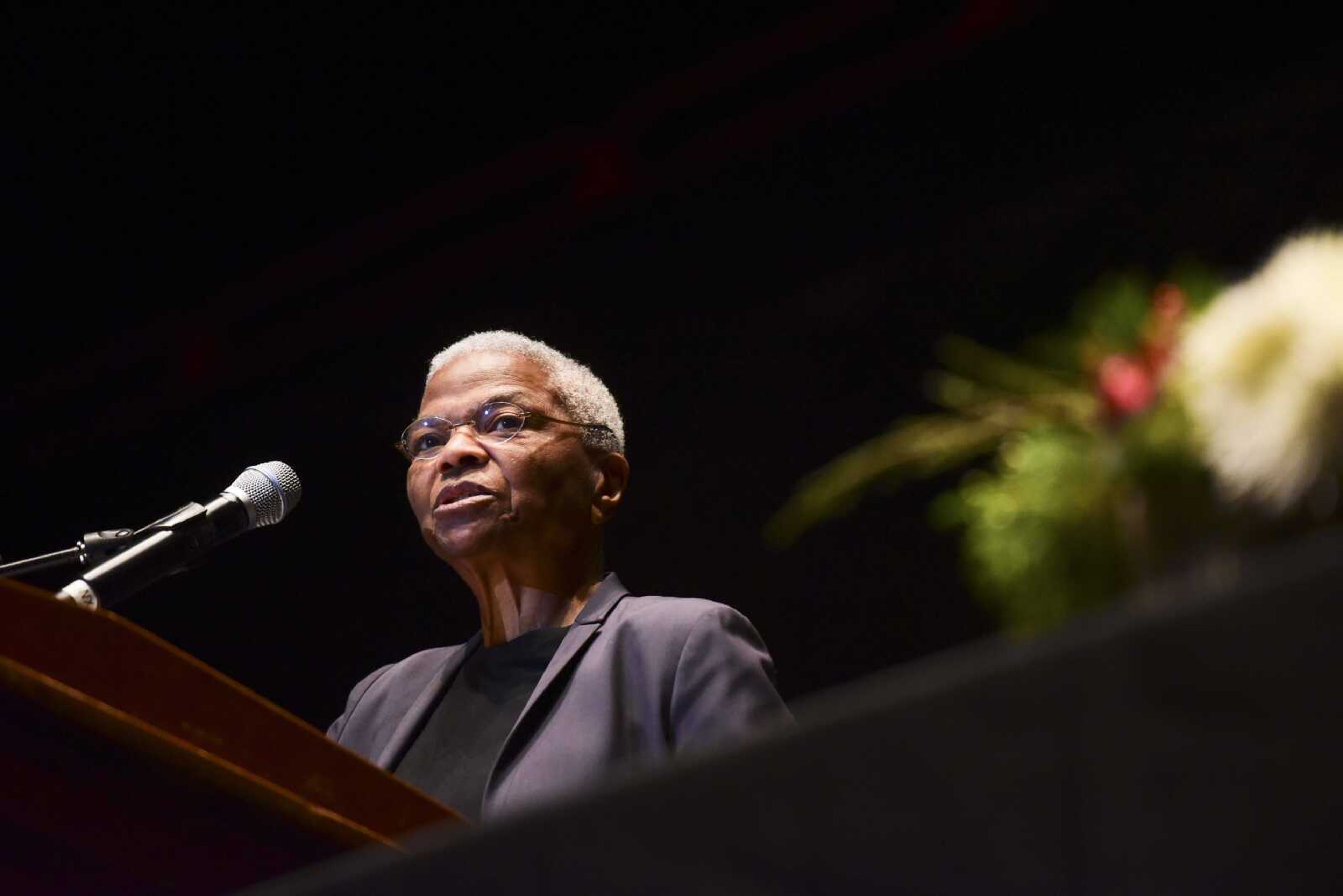Civil-rights activist: King's work is not done
Martin Luther King Jr.'s birthday is a bittersweet occasion for civil-rights activist Mary Frances Berry. "I'm somewhat sad," she said during her keynote address Wednesday night at Southeast's Dr. Martin Luther King Jr. Celebration Dinner. "Because I miss Coretta [Scott King]. And I miss Martin."...
Martin Luther King Jr.'s birthday is a bittersweet occasion for civil-rights activist Mary Frances Berry.
"I'm somewhat sad," she said during her keynote address Wednesday night at Southeast Missouri State University's Dr. Martin Luther King Jr. Celebration Dinner. "Because I miss Coretta [Scott King]. And I miss Martin."
She and Coretta Scott King would imagine what might have been -- from what King might have accomplished to what he would have looked like with gray hair.
But now, she said when she talks to young people, she sees the struggle she and other civil-rights activists endured was worthwhile.
"And I feel better," she said.

King's assassination "defined for me the trajectory of my life as an activist," she said.
From that point on, she said she became unable to ignore injustice in any form.
It was "like a fire shut up in my bones. I can't be still in the face of injustice," she said.
She said the mission of King and the other great civil-rights leaders of the era was not so much to change the fabric of America, but to make the nation's founding promises applicable to everyone.
"This is what we've worked for," she said. "And we've come a long way."
But the glass that is half-full is still half empty, she said.
Even the election of Barack Obama as the nation's first black president doesn't mean the problems that surround civil rights in America have been solved, she said.
"I sometimes wondered if he'd get outta there alive," she said of Obama.
She said there is work to be done, and much of the necessary work must be done at the local level by ordinary citizens rather than national politicians.
"Those of us who were activists in the '60s and '70s are getting older," she said.
Vote, run for local office, engage wherever possible, she said.
"What I'm saying is there's more work that needs to be done," she said. "You don't have to agree with that, but it's true."
She encouraged those who would be tempted to despair by the current political climate to look at history instead.
"We've been here before in terms of the politics we have to face," she said. "Start a movement if you need a policy change."
She said her experience fighting South African apartheid taught her the power of grassroots activism, when she and other activists "raised so much hell," the authorities released Nelson Mandela ahead of schedule.
"Each generation must make its own dent in the wall of injustice," she said. "Though justice may seem to be on the losing side ... it's not over 'til God says it's done."
tgraef@semissourian.com (573) 388-3627
Connect with the Southeast Missourian Newsroom:
For corrections to this story or other insights for the editor, click here. To submit a letter to the editor, click here. To learn about the Southeast Missourian’s AI Policy, click here.










